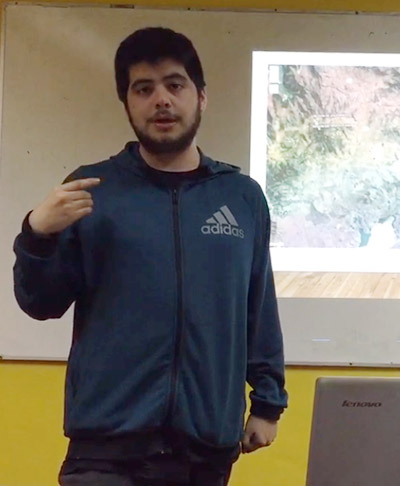"I like the way kanji is dealt with"
Jorge Arancibia (Santiago, Chile)

Jorge has been studying Japanese at the Chilean Japanese Cultural Institute in Santiago for three years. He started studying Japanese as he felt that there is not enough Spanish translation of the information related to Japan which he is interested in.
-What is your impression of studying Japanese with Marugoto?
Unlike the usual way of learning Japanese, I feel that learning through Marugoto is more intuitive and concise. The clear presentation of the themes makes it easy to understand.
-What do you think are the advantages of Marugoto?
The most notable advantage is the way kanji is dealt with. Once the furigana has been shown and the kanji has been learned, the furigana won’t be shown the following time. In this way, you get to know certain readings and the context where it’s read.
Another advantage is that the audio recordings are played many times in a single lesson, which makes it more dynamic and strengthens your listening ability.
-What phrases in Japanese do you like best? And Why?
I really like the Japanese expressions that can be translated to our language in many ways such as "かわいい (Kawaii)", "よろしくお願いします (Yoroshiku onegai shimasu)", "そうです (Soudesu)", etc. This is because I find it hard to define them as they carry not only simple and direct meanings but also meanings related to the way Japanese people see their everyday life. I also like to see people who understand Japanese trying to find as close a definition as they can.
-Please let us know what you would like to do in the future using Japanese, if you have such a plan.
I would really like to read Japanese books and manga, play video games, and travel through Japan using Japanese as much as I can.
